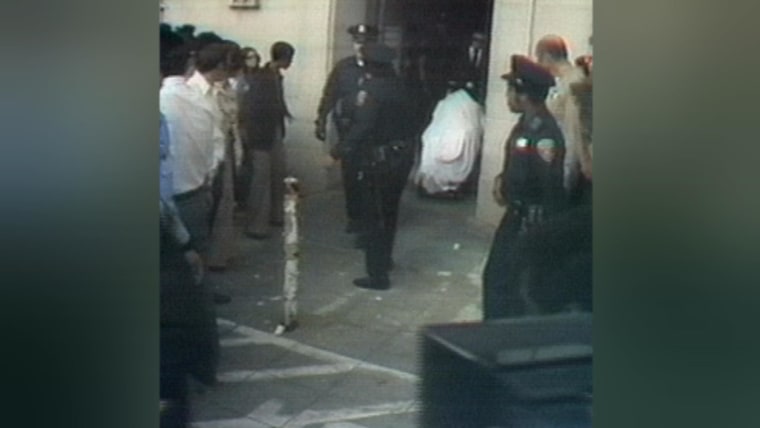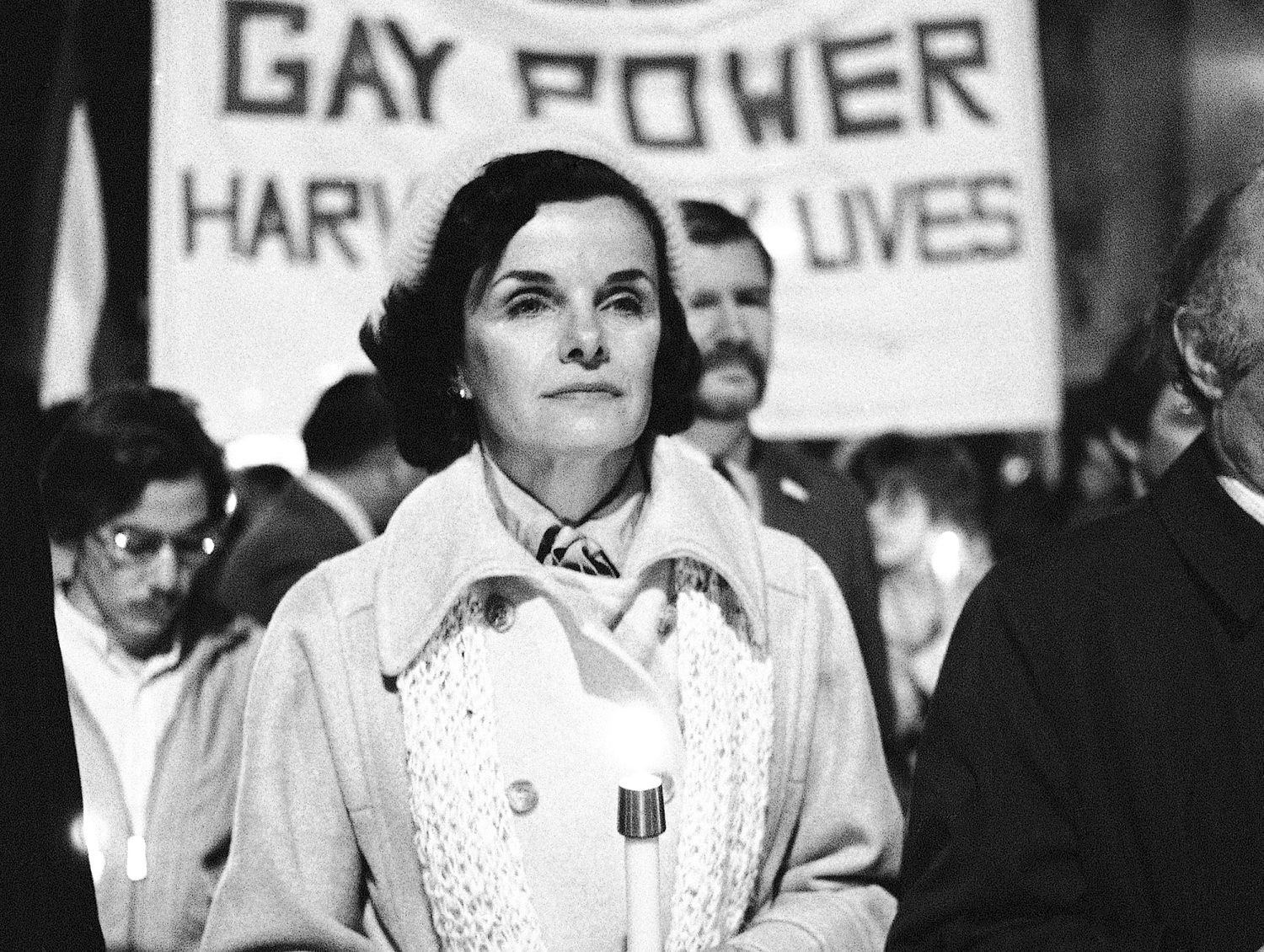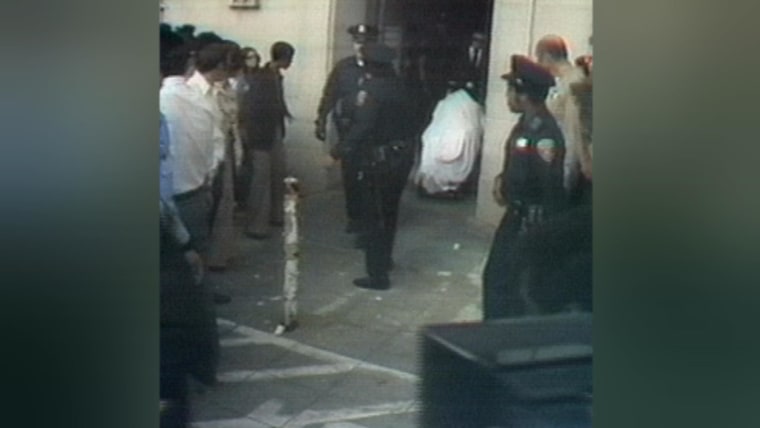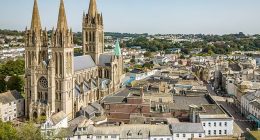Dianne Feinstein was president of the San Francisco Board of Supervisors — a job she didn’t plan on seeking re-election to — on the November day in 1978 that shocked the city and changed her life.
“It’s my duty to make this announcement. Both Mayor Moscone and Supervisor Harvey Milk have been shot and killed,” she told the assembled crowd of reporters and City Hall employees, who reacted with shock and screams.
“The suspect is Supervisor Dan White,” she said.
Feinstein, who died Thursday at age 90, became the acting mayor and went on to serve two terms before later being elected to the U.S. Senate, where she made gun safety a top priority. That calling was thanks in large part to the horror she witnessed on Nov. 27, 1978.
The killings “helped form who I am and what I believe,” she told the San Francisco Chronicle in 2008, but “if I could have undone the moment, even today, I would have undone it in a second. In a nanosecond.”
Feinstein had run for San Francisco mayor against George Moscone in 1975 and lost, but was elected president of the Board of Supervisors in 1978, where she worked with White and Milk, the first openly gay elected official in California history.
White resigned from his post earlier in November to focus more on his business, a decision he made during a three-week period where Feinstein had been on vacation and then recovering from an illness she got on the trip, she recalled to the Chronicle.
White had changed his mind about his resignation and was trying to get his job back from Moscone with Feinstein’s backing. Moscone and Milk both wanted to give the job to someone else, and the mayor planned to formally inform White of the decision the morning of the 27th.
She later testified at White’s criminal trial that she planned to tell White the news herself that morning in order to soften the blow.
“I had asked my staff to locate Dan White so that I might talk with him,” she said.
“I was sitting at my desk, and I heard the door open, and I saw him enter, and I said, ‘Dan,’ and he said something to the effect, ‘Just a moment,’ or, ‘I have something to do first’ and went by very rapidly,” Feinstein testified.
She said she then heard the “unmistakable” sound of gunfire.
“Directly after the first one, I thought he didn’t — knew he wasn’t going to be reappointed and he shot himself, and then I heard additional shots, and I knew that something was wrong, and I heard several shots,” she recounted.
“I knew I had to move, and I was trying to force my brain and my body to function together and move out of the chair, and I had gotten out of the chair and was approaching the door of my office when I saw Dan leave, and I said, ‘Dan,’ and he went right by, and the door closed. I then smelled the gunpowder,” she said.
She then went into Milk’s office.
“I found Harvey on his stomach. I tried to get a pulse and put my finger through a bullet hole. He was clearly dead,” she told the Chronicle around the 30th anniversary of the murders.
She called the police chief, who told her the mayor had been killed also. The Los Angeles Times reported that both men had been shot in the head twice and five times in their bodies.
“I remember it, actually, as if it was yesterday. And it was one of the hardest moments, if not the hardest moment, of my life,” she told the Chronicle. “It was a devastating moment. For San Francisco, it was a day of infamy.”
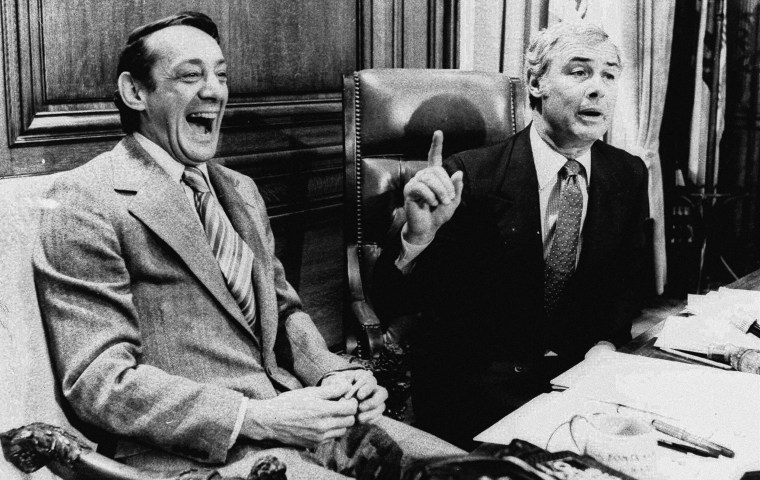
White was charged with their murders, but convicted of a lesser manslaughter charge after his lawyer used what became known as “the Twinkie defense” to contend he was mentally diminished because of a combination of depression and junk food.
He served just five years in prison and died by suicide in 1985.
Feinstein told the Chronicle in the 2008 interview she was still haunted by the violence, and well aware that it contributed to her political success.
“I couldn’t sit in George Moscone’s chair for seven years, and some of it, I think, is that I became mayor as a product of assassination. I had run, and I had not won, and that was a very difficult thing for me to reconcile in my own mind,” she told the paper.
Referring to her vacation and illness, she said, “I still believe that if I could have been there for that three weeks, I could have stopped it.”
“Now, who knows? Who knows?” she said.
In the Senate, Feinstein was a vocal advocate of gun control measures and championed the assault weapons ban that then-President Bill Clinton signed into law in 1994.
Feinstein authored a new version of the bill in 2013 and got into a fiery exchange on the issue on the Senate floor that year with Sen. Ted Cruz, R-Texas. Cruz asked her if she would consider limits to other amendments in the Bill of Rights.
“Senator, I’ve been on this committee for 20 years. I was a mayor for nine years. I walked in, I saw people shot. I’ve looked at bodies that have been shot with these weapons,” she said, noting the legislation exempted over 2000 types of weapons.
“Isn’t that enough for the people in the United States? Do they need a bazooka?” she asked.
“It’s fine you want to lecture me on the Constitution,” she added. “I appreciate it. Just know I have been here for a long time.”
Source: | This article originally belongs to Nbcnews.com
